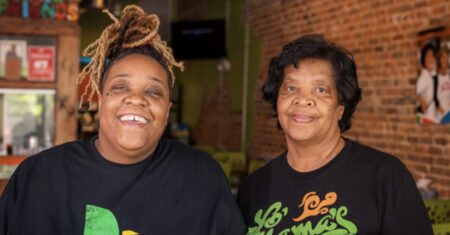By: RAPID, Stanford Center on Early Childhood
The RAPID Survey Project, based in the Stanford Center on Early Childhood, is a program of ongoing national and place-based surveys designed to gather essential information on the needs, health-promoting behaviors, and well-being of young children and their caregivers. Our objective is to make timely and actionable data on the experiences of parents, caregivers, and young children available in an ongoing manner to support parent- and data-informed decision-making. Children’s earliest years are a critical period when the foundation is built for lifelong physical health and emotional well-being. Research shows that consistent, responsive caregiving is conducive to healthy development during these early years. We asked parents of infants and toddlers (birth to age 3) to tell us about their childcare experiences and preferences. Using responses from parents of infants or toddlers who participated in national RAPID household surveys in January 2024 and November 2024, we aim to understand the types of childcare that families with infants and toddlers use and what is most important to parents when selecting child care.
Family, friends, and neighbor (FFN) care is the most common childcare choice for families with infants and toddlers.
We asked parents of infants and toddlers questions about how much childcare they use, as well as their experiences using center-based care, home-based care, and both paid and unpaid family, friend, and neighbor (FFN) care. More than two in three (68%) parents of infants and toddlers use childcare for five hours or more per week. Among these families, and consistent with other national data, FFN care makes up the largest share of providers of infants and toddlers.
Responses from the survey show that, on a weekly basis:
—32% of parents use center-based care
—26% of parents use unpaid FFN care
—13% of parents use paid FFN care
—12% of parents use home-based care in the childcare provider’s residence
“Sometimes it is difficult to find relatives/friends who I trust and are available as sometimes their plans change.” Parent in Wisconsin
“I’m relying on family and things arise that make them unable to help. I have looked into center-based care and considered going back to work, but it will cost me more for childcare than I can make in income to pay for it.” Parent in Ohio
“I use babysitters, mostly teenagers, so their schedules are sometimes unreliable. They do their best, but they have other commitments, too. They also can’t always work during the day, which is when I need them.” Parent in Texas
Reliable access to childcare is a particular concern for many parents of infants and toddlers.
The predictable schedules and routines that are associated with stable access to childcare support the positive well-being and development of children, families, and caregivers. In their responses to open-ended questions, parents of infants and toddlers spoke about the different challenges they experience securing childcare, including issues with affordability, hours, location, and trust in their provider. As indicated by the quotes in this fact sheet, parents mentioned concerns about providers meeting the specific and intensive caregiving needs of infants and toddlers, while at the same time families navigate high costs, low availability, and inconsistent schedules. Additionally, many parents, particularly those living in rural areas, noted the limited childcare options near their home or work. This points to the barriers to reliable childcare access that families with infants and toddlers face, and these data can inform policies and programs that support families in meeting this critical need.
“In a rural area, childcare is very hard to find, and rates are not competitive because they don’t have to be.” Parent in Montana
“I had challenges finding other part-time care closer to where we live so I drive one hour twice a week for part-time care.” Parent in Louisiana
“We had to contact this provider very early on. I was maybe five or six weeks pregnant. And she happened to have a spot. If we had waited much longer, we wouldn’t have gotten in.” Parent in South Carolina
“I am currently using backup care days offered by my employer as our primary form of childcare for our younger child. In March, I will run out of days to use, and we are struggling to find an affordable option nearby that has availability when we need it.” Parent in Virginia
Trust in their childcare provider is the most important thing to families with infants and toddlers.
To understand families’ childcare needs, we asked parents what factor matters the most when selecting childcare for their infants and toddlers. We provided a list of factors to choose from for each type of childcare used. Across all types of childcare, parents of infants and toddlers are most likely to say that trust and/or comfortability with their provider is the top factor when they select child care for their family. Parents are significantly more likely to endorse trust and/or comfortability with their provider than any other factor, including affordability, availability, location, or the hours the provider is available.
Factors for selecting childcare, in order of frequency endorsed by parents of infants and toddlers:
- Trust and/or comfortability
- Affordability
- Availability
- Location
- Hours
“Finding a trustworthy and experienced caregiver who could handle our infant’s specific needs was a major concern.” Parent in New York
“Ensuring the caregiver has the necessary experience and qualifications to care for an infant adds another layer of difficulty.” Parent in Iowa
Predictable and nurturing caregiving contributes to positive early childhood development, and more work is needed to support families with infants and toddlers looking for childcare. RAPID data show that there is an unmet need among families with infants and toddlers for reliable, affordable, and trusted sources of childcare and that families are using a patchwork of childcare arrangements to find trusted sources of care for their infants and toddlers that they can afford and rely on. Parents themselves are experts in selecting the sources and settings of childcare that will best support their family and foster their child’s development, and they are placing an emphasis on selecting providers that their family trusts and feels comfortable with. These findings can inform policies and programs that address parents’ childcare concerns and experiences, so they are better supported in providing the healthy, responsive caregiving that is essential to their young children’s development.







